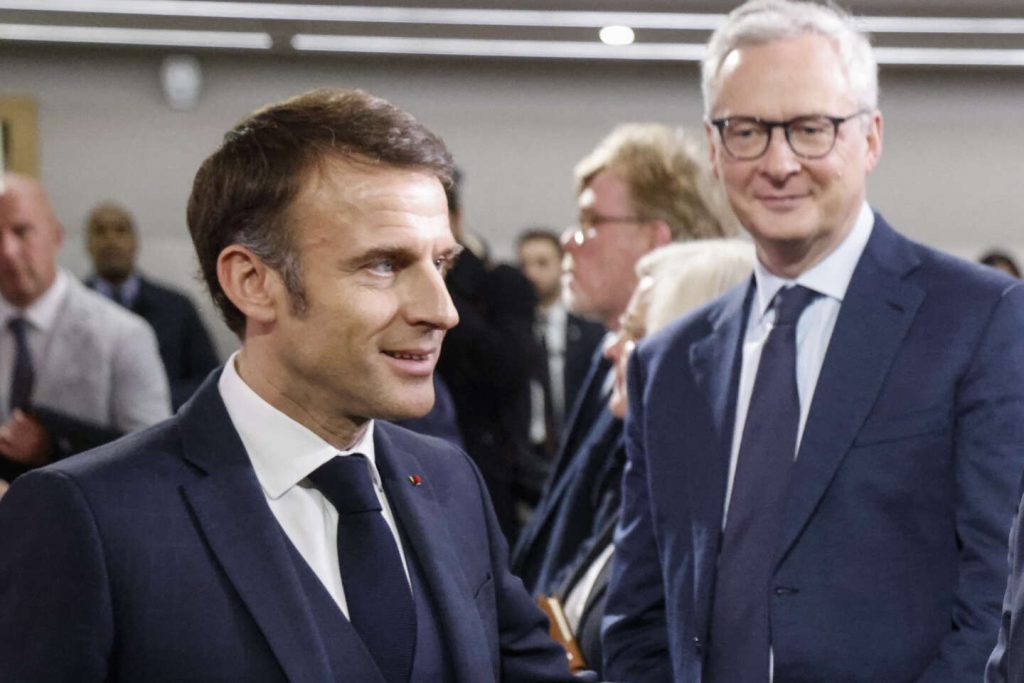Emmanuel Macron and Bruno Le Maire met on March 12, 2024, as tensions rose between the two over the state of France’s finances. Le Maire had to rearrange his schedule for a last-minute meeting with Macron to discuss the country’s stability program to be presented to the High Council of Public Finances. Macron was displeased with Le Maire’s portrayal of the financial state to the public, believing it was causing unnecessary panic among the French population. The deficit, reported at 5.5% of GDP, was higher than expected, but Macron viewed it as a temporary situation, not warranting a supplementary budget law as suggested by Le Maire.
Le possibility of utilizing Article 49.3 of the Constitution to bypass the Parliament vote on the budget bill was discussed, which could prompt the opposition party, Les Républicains, to table a vote of no confidence, accusing the government of dishonesty in managing public funds. This could lead to a political crisis and potential government downfall. Macron intervened in a majority coordination meeting to address the situation, emphasizing the need to stay on target with the budget objectives. He stressed that the issue was not excessive spending but rather a shortfall in revenue, and urged for seriousness in decisions regarding budget adjustments.
Macron was reportedly frustrated with Le Maire’s approach and attendance at the meeting served to diffuse tensions and reassert control over the situation. He made it clear that he saw no need for a supplementary budget law and called on the government to handle expenses responsibly to meet the established objectives. Macron’s message implied a need for calm and careful consideration of budget adjustments to avoid unnecessary chaos. He highlighted the importance of everyone taking responsibility for their spending decisions in the coming days, and emphasized the need for a disciplined approach to address the budget shortfall.
The political situation surrounding the budget discussions has raised concerns among Macron’s government and the opposition, with potential implications for the future stability of the administration. The conflicting views between Macron and Le Maire on how to address the budget deficit have led to tensions within the ruling party and fears of a no-confidence vote from the opposition. Macron’s intervention in the situation aimed to reassert control and unity within the government, while emphasizing the need for responsible decision-making to ensure the country’s financial stability. The outcome of these discussions and decisions will have significant implications for the political landscape in France.


